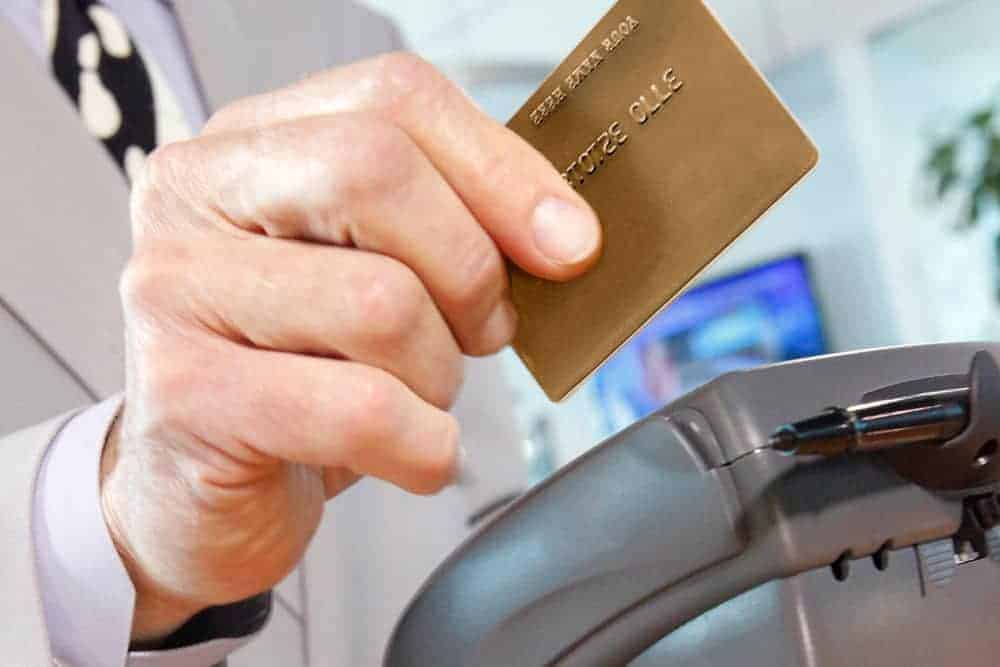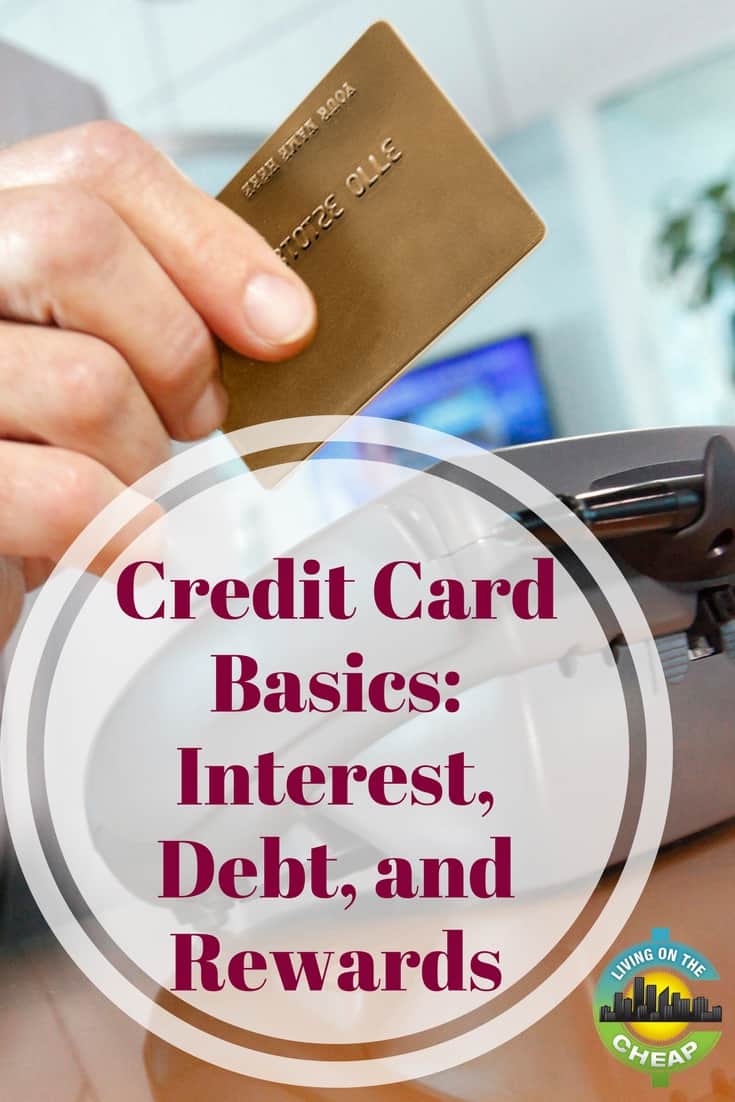Many consumers have a mixed relationship with credit cards. On one hand, they can lead to cash back, travel rewards, and the ability to buy something now and pay later. But when used irresponsibly, credit cards can lead to massive debt and expensive interest payments. If you typically use cash or debit and are interested in how credit cards can improve your personal finances, or harm them, read on to learn all about credit card basics.

The costs of credit cards: interest and fees
While there are many benefits of credit cards, it is important to understand the downsides first. There are millions of stories of people who signed up for a new credit card, ended up in debt, and spent years getting out. Even more, many people lean on credit cards when they are having financial trouble, only to have their money problems get worse due to the interest costs of credit cards.
Credit card costs come in three main categories:
- Interest — credit card issuers charge a percentage of outstanding balances as the primary cost of using a credit card.
- Annual fees — some credit cards charge a fee every year to keep and use the card, with $100 being a somewhat typical fee for introductory level premium travel rewards cards. The highest annual fee I’ve ever paid is $550 for a rewards card that includes airport lounge access.
- Other fees — Late payments, returned payments and missed payments incur fees. Other common fees include foreign transactions, cash advances, and balance transfers.
Responsible credit behavior and avoiding expensive cash advances and balance transfers will do a lot to keep your fees low. You also control which cards you choose to use, which can lower the annual fee. The cost that gets most people in trouble is interest.
Most credit cards charge interest based on the daily balance and your interest rate. For example, let’s say you have a card with a 20% interest rate. If you divide by 365, you get a daily interest rate of .055%. At the end of every day, the bank multiplies this number by your balance to calculate that day’s interest. At the end of the month, every day is added up to calculate your monthly interest charge.
But there’s a big however in this situation. If you pay your entire balance in full by the due date, you don’t have to pay any interest for the prior month. If you pay off your card in full every month, you never pay any interest. Interest charges occur only when you carry a balance from month to month.
The Consumer Financial Protection Bureau is a government organization designed to help you with your money. The CFPB requires card issuers to explain your charges very clearly in your monthly statement.
You should also read our Living on the Cheap article about how to get a bank to lower your credit card interest rate.
Managing credit card debt
If you do find yourself buried under a pile of credit card debt, taking the steps to get out of debt can lead to massive savings.
To avoid these costs, you can make payments on your credit card debt at any time. You don’t have to wait for the statement to show up in the mail (or email) to make a payment. You can make more than one payment per month. Most card users would be best off paying their cards off twice per month on payday. Doing so matches your income and expenses so you don’t have to save up for a bigger payment at the end of the month.
If you already have large balances and can’t pay them all off at once, create a plan to get yourself out of debt. Start by hiding your cards in the back of a drawer or in the freezer so you are not tempted to spend more and get even higher balances.
One of the best methods to pay off your cards is the debt snowball method. The sister method, the debt avalanche, is mathematically the best path to debt freedom. In this method, you make the largest payments you possibly can each month on your highest interest credit card. When that is finally paid off, move on to the next highest interest card until you are debt-free.
This is easier said than done. Getting out of credit card debt requires smart budgeting, aggressive payments, and sometimes means giving up some wants from today to improve your financial situation in the future.
Credit card rewards
Now that you know the risks and downsides of credit cards, let’s look at the big benefit: rewards. I have received thousands of dollars in free flights, hotel nights, cash back and other rewards from my credit cards.
The best rewards come with cards that require an annual fee. The fee is worthwhile if you get more value from your rewards than the cost of the fee. For example, the Chase Sapphire Preferred has a $95 annual fee. To make the card worthwhile, you just need to earn $95 or more in annual rewards. Conservatively, that requires spending about $9,500 per year to break even.
But there’s more! That same card offers a signup bonus of 100,000 points if you spend $4,000 on the card in the first three months you have it (offer at the time this was written; it can change at any time). That’s worth $1,250 in free travel when booking through the Chase rewards portal, or more when transferring to airline partners for high-value awards.
Every card offers different rewards. Consider your spending habits, the type of rewards you want to earn, and how you want to use your rewards when you choose a new card.
Bonus card benefits
On top of the rewards you can get from regular daily spending, many credit cards offer other useful benefits. Common benefits include rental car insurance, travel insurance, purchase price protection and product warranty extensions.
Every card has different benefits. Typically, cards from American Express and Chase have some of the best benefits. These benefits can be very valuable, so look into this as well before you sign up for your next card.
Credit cards are a financial tool
Credit cards are not good or evil. They are a tool you can use to improve your finances. But if used irresponsibly, they can lead to a personal finance disaster. If you plan how to use your cards and pay off your balances in full every month, you have little to worry about.
I use credit cards for every possible purchase to maximize my rewards, but some people are better off avoiding credit cards altogether. Credit cards may not be right for you, but for millions of people they are a great tool. If you know yourself and your habits, you can make the best credit card choices for you and your finances.
If you liked this article, you may also be interested in:
- How to save on shopping using credit card perks
- Credit card balance transfers: When are they a good deal?
- When to use credit cards and when to use debit cards

